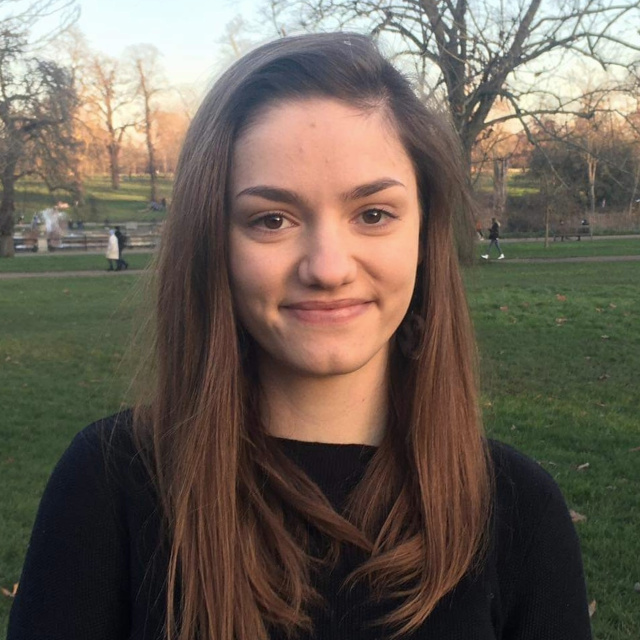
Could you tell us a little about yourself and about your studies before coming to Imperial?
I moved to London from Prague to study Maths & Statistics at King’s College London. The course was very theoretical, focusing mostly on pure maths. However, in my second year I got a chance to try coding for the first time and realised how much I enjoyed it. Eventually, I found AI to be the perfect way to merge all my academic and professional interests, and decided to pursue a master's degree in this field.
What attracted you about the MSc in AI?
Most importantly, the course is tailored to people without a typical computer science background. Compared to other courses, I found that this one offered a lot of hands-on projects both in software development and academic research. I personally find this type of learning the most productive, and given that I didn’t have that much coding experience, having interesting projects to talk about proved extremely valuable when applying for jobs.
What did you enjoy the most?
Moving into AI with a very theoretical background, I was the most excited whenever I'd build something, whether it was an agent which finds its way through a maze or a model that can classify brain MRIs. The learning curve in this course was steep, but thanks to some amazing coursemates it was really fun. Everyone was always happy to collaborate and help each other out, which made a huge difference, especially given that my year did the course during COVID lockdowns.
Further, the support I received through the DeepMind scholarship made my experience even better—I got to meet amazing people and learn from some of the most impressive researchers in the industry.
What did you find more challenging?
The first term was a challenge for me, because I had to learn coding and working with Python almost from scratch, all while also trying to digest all my AI/ML classes and complete often coding-based coursework. Yet in the end, it was highly rewarding to see how much I learned and grew in the first few months of the course.
Could you tell us about some of your achievements on the MSc that make you proud?
I'm very proud that I got to present a paper based on the work I did as part of my individual project, at the 2022 Interspeech conference. I also got to travel to South Korea for the event, which had been on my travel bucket list for a long time. It was an incredible experience!
What did you do in your spare time?
Almost everyone picked up a new hobby during lockdown—mine was embroidery, I found it very relaxing. When the COVID rules allowed it, I enjoyed going bouldering with my coursemates.
Could you tell us about your individual project?
I worked on detecting Alzheimer’s disease from spontaneous speech, which allowed me to expand my knowledge of machine learning in both text and audio domains. I loved that I got to apply all of what I’d learned in the course so far in such a practical and exciting way.
What have you been doing since you graduated?
I did my course during COVID and lockdowns, so after graduating I took advantage of the world opening up again and took a bit of time off to travel and see friends and family. After that, I joined a London-based NLP startup as a Data Scientist. My work is pretty diverse and I get to do research as well as software development.
Do you have any advice for prospective students?
If you're a Python newbie and have a bit of time to practise before the course starts, it will make your first weeks less hectic.
During the course, take advantage of all the support you have available. It can get intense at times, but the lecturers and TAs are there to help, so don't be scared to ask questions!
Overall, this is a great course for anyone without a computer science background, and will allow you to continue your AI journey in whichever direction you'd like to take it.